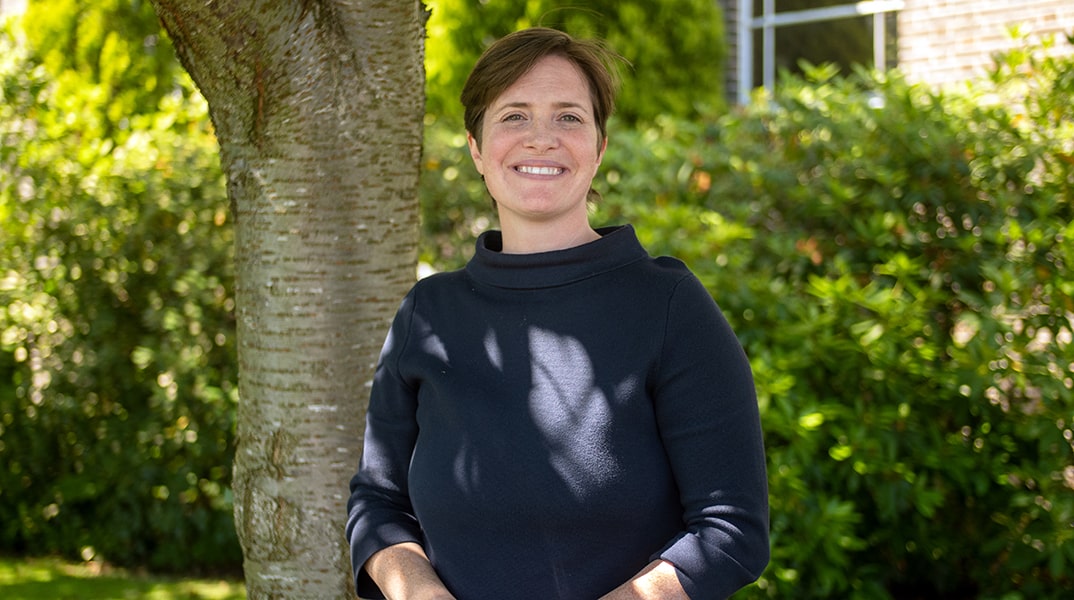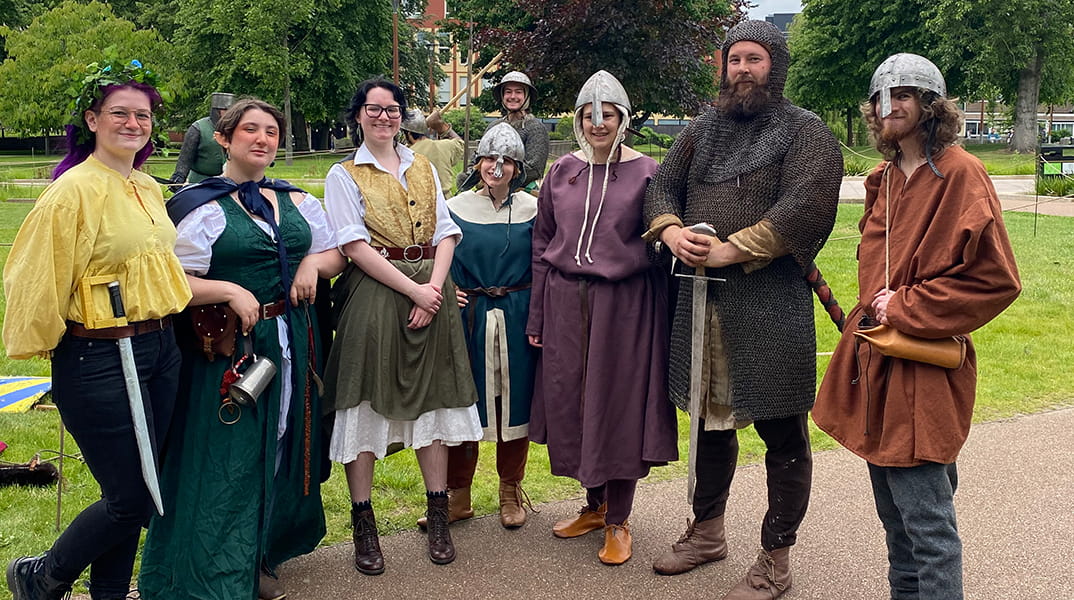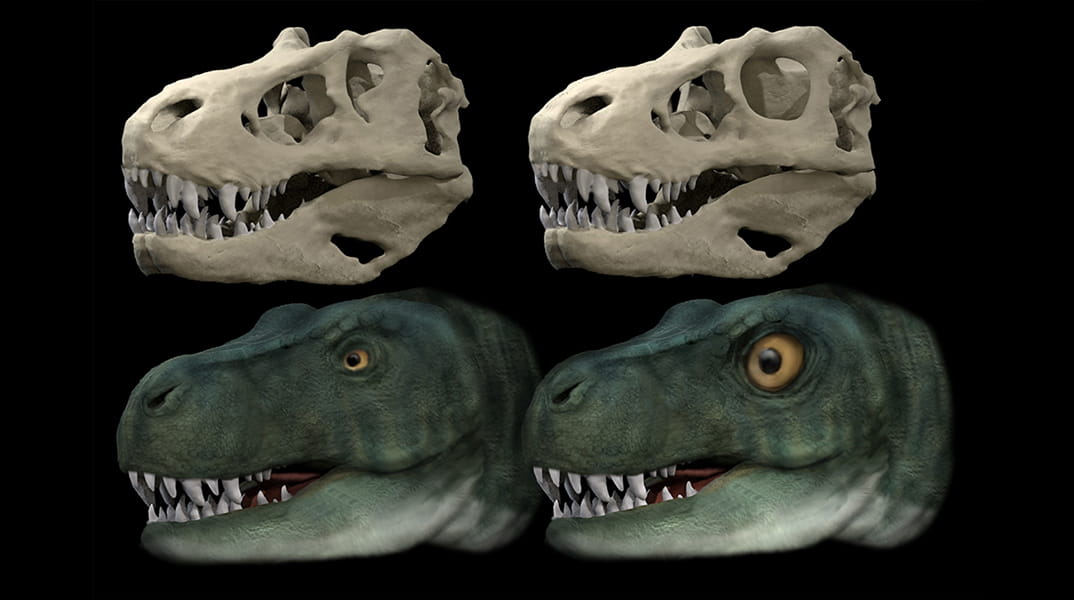The latest news highlights, from dinosaur discoveries to a JRR Tolkien weekend on campus.

All the world's a stage
Never before seen items from the Shakespeare
Memorial Library are among the objects currently on display at a new exhibition bringing to life the world's first library dedicated to the playwright.
Everything to Everybody: Your Shakespeare, Your Culture is being held at the Library of Birmingham to reveal the forgotten but amazing story of what Birmingham did for the Bard and for public culture in general.
Part of 'Everything to Everybody', the collaborative project between the University and Birmingham City Council to revive the Birmingham Shakespeare Memorial Library, the exhibition highlights the more than 80,000 items held in the collection. These include volumes, production photographs, music scores, production posters, performance programmes and playbills, as well as the collection's rare 1623 Shakespeare First
Folio.
The first collected volume of Shakespeare's plays, bought for Birmingham's public collection in 1881, it was stamped with the Library of Birmingham's name so it will always be for the people of the city.
The 'Everything to Everybody' project is funded
by generous donations from the National Lottery
Heritage Fund, the University of Birmingham,
Birmingham City Council, History West Midlands,
Gareth Neame, Michael Chowen and John Abeles.
Professor Ewan Fernie, Project Director
for 'Everything to Everybody' and Chair of
Shakespeare Studies and Fellow at the University, says: 'This wonderful, thought-provoking and challenging exhibition reveals the "everything to everybody" ethos as the key to Birmingham's historic identity and present-day potential.
'We're delighted to be showcasing the riches
of the world's first great Shakespeare library,
including many items that have never been
seen before.'
Picture: Jas Sansi

Prestigious award for University professor
University chemist Professor Rachel O'Reilly has been elected a Fellow of the Royal Society.
The prestigious appointment is granted to just a handful of outstanding scientists from around the globe.
Rachel, Head of Chemistry at Birmingham, is a world leader in the study and development of new nanoscale tools that enable predictable and precise construction of macromolecular architectures and enable new directions in materials science.
Even simple synthetic polymers can deliver useful properties, such as heat proof, non-stick Teflon. Rachel's work aims to take this further, producing advanced materials which often try to reproduce the form and action of polymers found in nature, like carbohydrates and proteins, or glow in response to specific compounds, for use in healthcare.
One goal is to create materials that can slowly release highly targeted medicines or self-assemble when they sense a change in the body. Rachel is collaborating on creating nanoparticles that help grow neural stem cells in the brain.
Other members of staff to be recognised this year included Professor Graham Anderson, Professor of Experimental Immunology, who was elected to the Academy of Medical Sciences, while Professor Paul Moss was awarded an OBE in the Jubilee Honours List for services to immunotherapy and COVID-19 research.

From the Shire to the Green Heart
The works of JRR Tolkien were celebrated this summer with a Fantasy Worlds Weekend, aimed at celebrating and developing Birmingham’s rich heritage of fantasy.
Among the events was the University’s first Annual Tolkien Lecture, in which internationally-renowned scholar Dr Dimitra Fimi assessed Tolkien’s ideas and inspirations, as revealed by various interviews the author gave during his lifetime.
The Edgbaston campus also held a festival with fantasy-themed activities, including interactive storytelling and re-enactments, while visitors could create their own fantasy-themed character with help from the University’s Middle-Earth Society – and indulge in a marathon viewing of the Lord of the Rings film trilogy.

Birth of new midwife course
The first cohort of students on the University’s new postgraduate Midwifery degree has begun the two-year MSc programme at Birmingham Medical School.
Launched in response to a call from Health Education England to reduce the shortage of 2,000 NHS midwives, the course is open to current Nursing and Midwifery Council (NMC) registered adult nurses, and will lead to registration as a midwife.
Find out more on the University website.

T-rex. what big eyes you have!
A Birmingham academic has discovered that large dinosaur predators, such as the mighty Tyrannosaurus rex, evolved different shape eye sockets to better deal with the huge force they generated as they bit their prey.
Dr Stephan Lautenschlager, Senior Lecturer for Palaeobiology at the University, analysed the shape of the eye sockets of 500 different dinosaurs and related species. Those with skulls of at least one metre in length had developed elliptical or keyholeshaped sockets, as opposed to circular eye sockets that were more prone to high stresses during biting.
 Find all the medals throughout the autumn 2022 edition of Old Joe to enter our Birmingham 2022 Commonwealth Games competition.
Find all the medals throughout the autumn 2022 edition of Old Joe to enter our Birmingham 2022 Commonwealth Games competition.